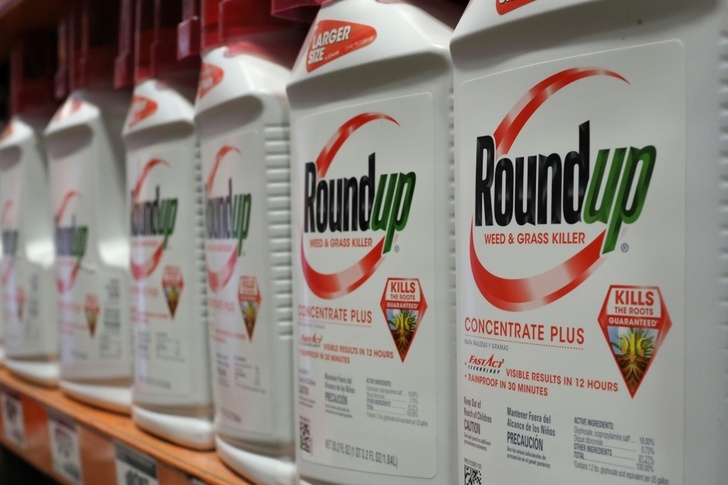The US Supreme Court on Tuesday declined an appeal from Bayer-owned Monsanto that aimed to challenge thousands of lawsuits claiming its weedkiller Roundup causes cancer -- a potentially costly ruling.
The high court did not explain its decision not to take the case, which left intact a $25 million ruling in favor of a California man who alleged he developed cancer after using the chemical for years.
The decision marks a major blow to the German conglomerate's legal fight against some 31,000 Roundup-related cases.
"Bayer respectfully disagrees with the Supreme Court's decision," the company said in a statement.
"The company believes that the decision undermines the ability of companies to rely on official actions taken by expert regulatory agencies," it added, referring to a 2020 federal finding that Roundup's active ingredient is not risky.
Plaintiffs' attorneys welcomed the justices' decision as setting a clear path for people to seek compensation in these cases.
Matthew Stubbs said his firm Duncan Stubbs "continues to represent thousands of Roundup plaintiffs, with a wave of cases set for trial in the coming months and more behind them for as long as Bayer wants to delay."
Bayer has been plagued by problems since it bought Monsanto, which owns Roundup, in 2018 for $63 billion and inherited its legal woes around the chemical's ingredient glyphosate.
The German firm says it has not committed any wrongdoing, and maintains that scientific studies and regulatory approvals show glyphosate is safe.
Glyphosate is nonetheless classified as a "probable carcinogen" by the International Agency for Research on Cancer at the World Health Organization (WHO).
However, the United States Environmental Protection Agency, on its website, says "there are no risks of concern to human health when glyphosate is used in accordance with its current label."
A California-based appeals court last week ordered the EPA to reconsider that finding.
- Billions at stake -
The Supreme Court's ruling not to intervene leaves in place a judgment in the lawsuit filed by Edwin Hardeman, who was diagnosed with non-Hodgkin's lymphoma in 2015.
In addition to the some 31,000 cases about alleged health problems against the weedkiller, Bayer's own shareholders have taken legal action as well.
Investors are seeking 2.2 billion euros ($2.5 billion) in damages in a German court for losses incurred following its troubled takeover of Monsanto, their lawyers said in January.
The investors accuse Bayer of having "misled capital markets about the economic risks from pending consumer lawsuits in the United States in connection with glyphosate and the herbicide Roundup," law firm Tilp said in a statement.
Tilp said around 320 investors have submitted complaints, most of them institutional investors such as banks, wealth managers, insurers and pension funds.
In the United States, Bayer signed a $10 billion settlement with plaintiffs in June 2020, with the parties agreeing to add $2 billion to settle future claims, but this part of the agreement was rejected by a California judge.
In an attempt to put an end to all proceedings, the firm presented a five-point plan in the summer of 2021 stating that if it lost the Hardeman case in the Supreme Court, it would begin discussions on the claims not included in the 2020 agreement.
Bayer said it is transitioning its glyphosate-based products in the US residential market to new formulations that have alternative active ingredients beginning in 2023.
"The company is taking this action exclusively to manage litigation risk in the US and not because of any safety concerns," it said in a statement.
Bayer says it has resolved around 107,000 of a total of 138,000 cases related to the herbicide.
Bayer's share price closed down about two percent after the court's decision on Tuesday.
chp/jm/sst
© Agence France-Presse
Your content is great. However, if any of the content contained herein violates any rights of yours, including those of copyright, please contact us immediately by e-mail at media[@]kissrpr.com.
Source: Story.KISSPR.com

